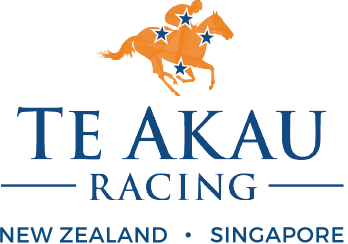 NZTBA CEO Justine Sclater gets up close and personal with outstanding racehorse and sire Frankel.
NZTBA CEO Justine Sclater gets up close and personal with outstanding racehorse and sire Frankel. Representing the New Zealand Thoroughbred Breeders’ Association in the United Kingdom earlier this month had many dimensions for the organisation’s CEO Justine Sclater.
Pivotal to Sclater’s two-week sojourn was the International Thoroughbred Breeders’ Federation (ITBF) conference, staged over four days in Newmarket and attended by representatives from 23 of the 25 member states. Between times she was treated to raceday attendances at Epsom for the English Derby and the opening day of Royal Ascot as well as the opportunity to visit significant studs in the Newmarket region.
Most relevant, however, was the opportunity in this (almost) post-Covid world to gather and discuss pressing industry matters with like-minded people.
“It was incredibly valuable to engage with such a diversity of countries represented; it was important that New Zealand should be one of them,” Sclater told Raceform on her return last week. “I felt so privileged to be the person there on behalf of New Zealand, but what really struck me was the range of challenges that no matter where in the world, are common to us all.
“Whether it’s the demands on land, declining foal crops, the difficulty in finding staff or the need for racing to protect its social licence, just about every country has the same challenges. No matter who I was engaging with, it came through strongly that we not only share the same ambitions but also the same issues.”
The pressing matter of thoroughbred production levels was inevitably well aired, Japan being the only jurisdiction with annual foal crops either holding its own or on the rise.
“Japan definitely stands out in that respect,” added Sclater. “The general belief is that is the result of the huge investment made by Japanese breeders in the world’s best bloodlines over the decades and the way they have managed them since.
“Japanese stake levels are massive, but on the other hand it’s interesting that even in Australia, which is now seen as a world leader in respect of prize-money, foal crops are still decreasing year on year.
“The message coming through was that we have to take a positive approach in making the available numbers work for us. That may even mean a scaled down industry, but that shouldn’t mean quality has to suffer.
“The same applies to the standards we should be setting for people who want to work in the racing and breeding industry. We can’t rely on something as simple as love for the horse being enough to attract young people; a skilled workforce relies on the right pathways being in place to make employment not only attractive but also sustainable.”
A key ITBF philosophy is an international standard for equine disease awareness, which in New Zealand’s case may well mean modernisation of its notifiable diseases list, highly contagious strangles being an obvious example.
“It’s so important that we get on board with what the Equine Infectious Disease Surveillance team is trying to achieve,” added Sclater. “Part of that is the development of a digital passport, which I gained an insight to when I visited Weatherbys, the Keeper of the British Stud Book.
“Using modern technology that incorporates a Bluetooth app, everything from ownership, to vaccinations records and movements can be recorded and accessed, which we have to understand has become so important in keeping track of our horses, not only while they’re racing or breeding, but beyond that as well.”
Sclater’s trip to the UK was not all about workshops, lectures and discussions. It also meant attending the English Derby at the unique Epsom course and the first day of Royal Ascot, which included witnessing the Chris Waller-trained Nature Strip confirming his status as the world’s best sprinter with his King’s Stand cakewalk under James McDonald.
Highlights away from the track included a visit to Juddmonte’s Banstead Manor Stud, the home to the outstanding galloper and now champion sire Frankel.
“Getting close to a horse like Frankel, hat was an absolute thrill,” says Sclater. “He wasn’t the only fantastic looking stallion that we were privileged to inspect but he was special.
“What struck me about Frankel wasn’t any particular physical attribute, more the whole horse, he’s so even, everything about him is in proportion.”
While enjoying the obvious backing of the NZTBA for her trip to the UK, Sclater is also hugely appreciative of the assistance of others. “The ITBF and especially their Chair Kirsten Rausing, who is such an inspirational person, along with Great British Racing were fantastic hosts; I wouldn’t have got anywhere near as much out of my visit without their support.
“Back in the day I lived and worked in the Northern Hemisphere bloodstock industry, and this visit reminded me just how important it is and the respect it still holds. Not just in Newmarket, where traffic still has to give way to horses, but also in central London, where the horse still has a part to play.
“New Zealand doesn’t have the length of history that a country such as England does, but it still has an industry to be proud of, all based around the horse, and that’s something we have to protect in whatever acceptable way that we can.”










